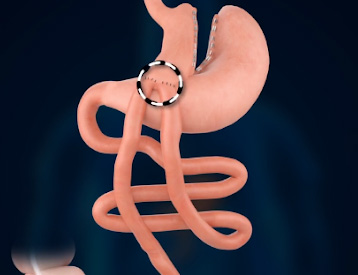Introduction
One Anastomosis Gastric bypass(OAGB) is a weight loss surgery which involves reducing the size of the stomach to promote early satiety and bypassing a section of the intestine to limit food absorption. This is usually carried out by the Roux-En-Y procedure in which the stomach and intestine are reconnected by creating two new communications or anastomoses. A one anastomosis gastric bypass is a modification of this procedure that simplifies the technique and, reduces operating time.
Disease Overview
Obesity can negatively affect your life and health in a multitude of ways. It is associated with coronary artery disease, high blood pressure, arthritis, diabetes, cancer, depression, sleep apnea, infertility, and other conditions. Weight loss through bariatric surgery considerably reduces the risk of disease and improves obesity-related health conditions as well as other aspects of life.
Indications
As with any bariatric surgery, one anastomosis gastric bypass is indicated when obesity endangers your health, eating habits are difficult to control and significant weight loss has not been achieved through diet and exercise.
Surgical Procedure
One anastomosis gastric bypass surgery is performed under general anaesthesia.
- The procedure is performed by using a laparoscopic technique, which involves making 3 to 4 small incisions through which a camera and special narrow instruments are introduced.
- Your stomach is first stapled so that a pouch or sleeve is created that is separate from the rest of the stomach.

- With one anastomosis gastric bypass, the stomach sleeve is anastomosed to the intestine below the duodenum without making a complete division in the intestine.
- This one anastomosis allows food that enters the small sleeve to bypass the rest of the stomach and duodenum and pass into the lower intestine.
Post-Operative Care
Following the procedure, you will stay a day or two in the hospital and will be started on small amounts of clear fluids initially. You will gradually be allowed to advance your diet and will be required to follow up with your doctor on a regular basis. A healthy change in lifestyle is recommended to obtain the best results.
Risks and complications
The one anastomosis gastric bypass is generally a safe procedure but potential risks include:
- Infection
- Bile reflux
- Leakage
- Nutritional deficiency
